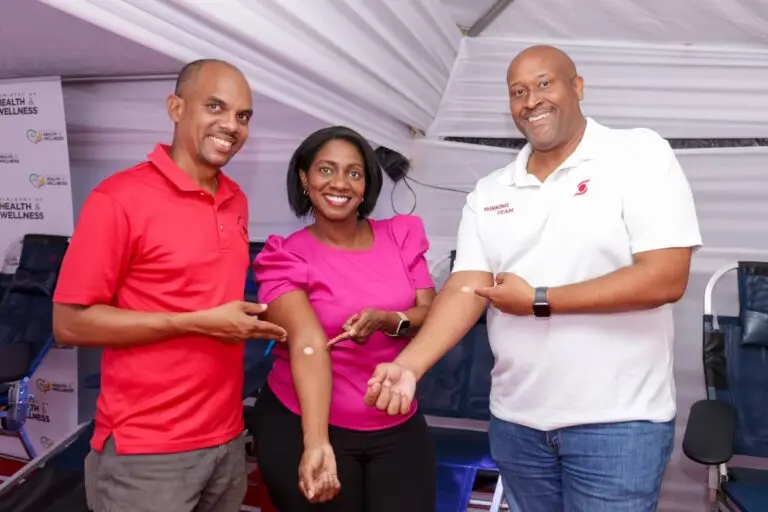Downtown Kingston pulsed with a different kind of currency on Thursday, June 19, as Scotiabank transformed its flagship Scotia Centre into an impromptu clinic for the National Blood Transfusion Service (NBTS). Staffers in crisp red-branded polos, long-standing clients, and employees from nearby offices queued together—proof that civic duty can be contagious when the atmosphere is right.
Scotiabank’s leadership framed the event as more than a public-relations postcard. By underwriting the mobile transfusion unit, coordinating donor logistics, and offering paid time off to participating employees, the bank signalled that “community investment” is less about slogans and more about measurable impact—the litres of safe blood now available for surgeries, accident victims, and premature infants across Jamaica.
NBTS officials departed with replenished reserves and, just as valuable, a roster of first-time donors who pledged to return every 12 weeks. That behavioural shift is precisely what Scotiabank hopes to catalyse: a sustainable culture of voluntary donation rather than a one-day spike.
Event snapshots
- Donor throughput: Steady from 9 a.m. until wrap-up at 4 p.m., with appointment slots exhausted by mid-morning.
- Wellness stations: On-site health screenings doubled as teachable moments about hypertension and diabetes—two issues that can rule out would-be donors.
- Peer recruiters: Senior managers led by example, rolling up their sleeves first and live-streaming the process to branch WhatsApp groups to nudge colleagues into the chair.
Scotiabank executives hint that Thursday’s drive is only the opening volley of a larger “Give Blood, Give Forward” campaign slated to rotate through regional branches this year. If the Kingston turnout is any indicator, those sessions may soon become fixtures on Jamaica’s civic calendar—proving, yet again, that the business of banking can bankroll far more than balance sheets.






